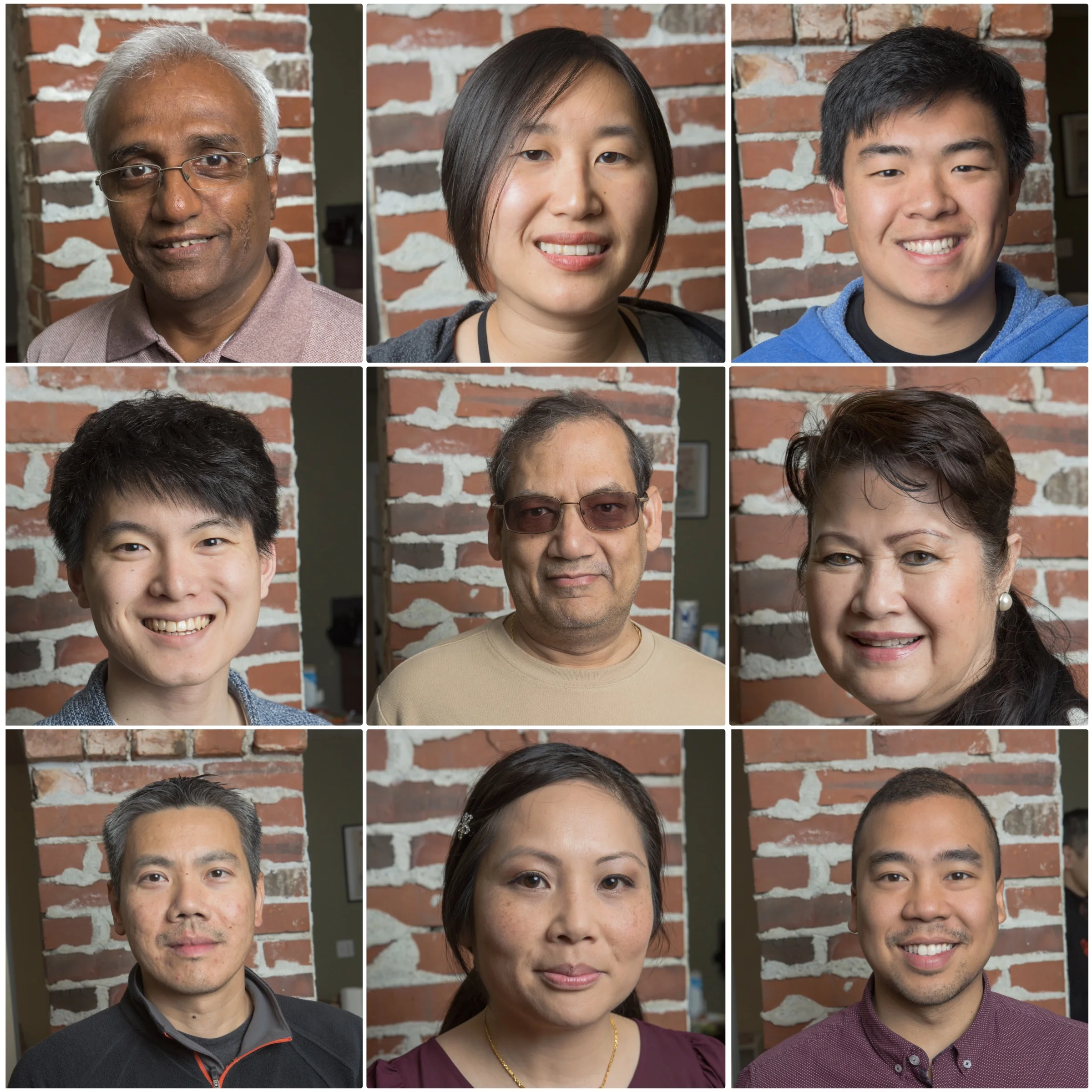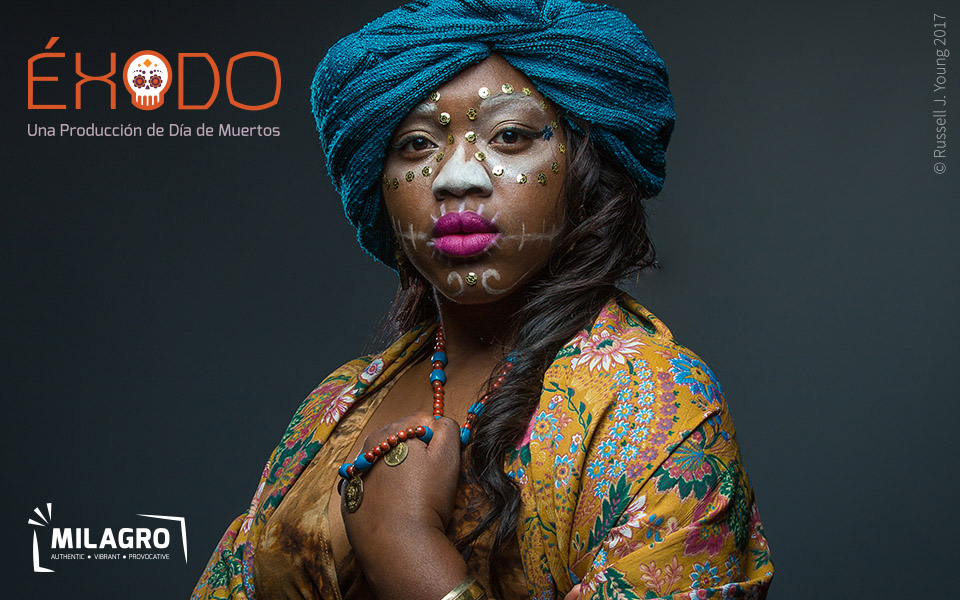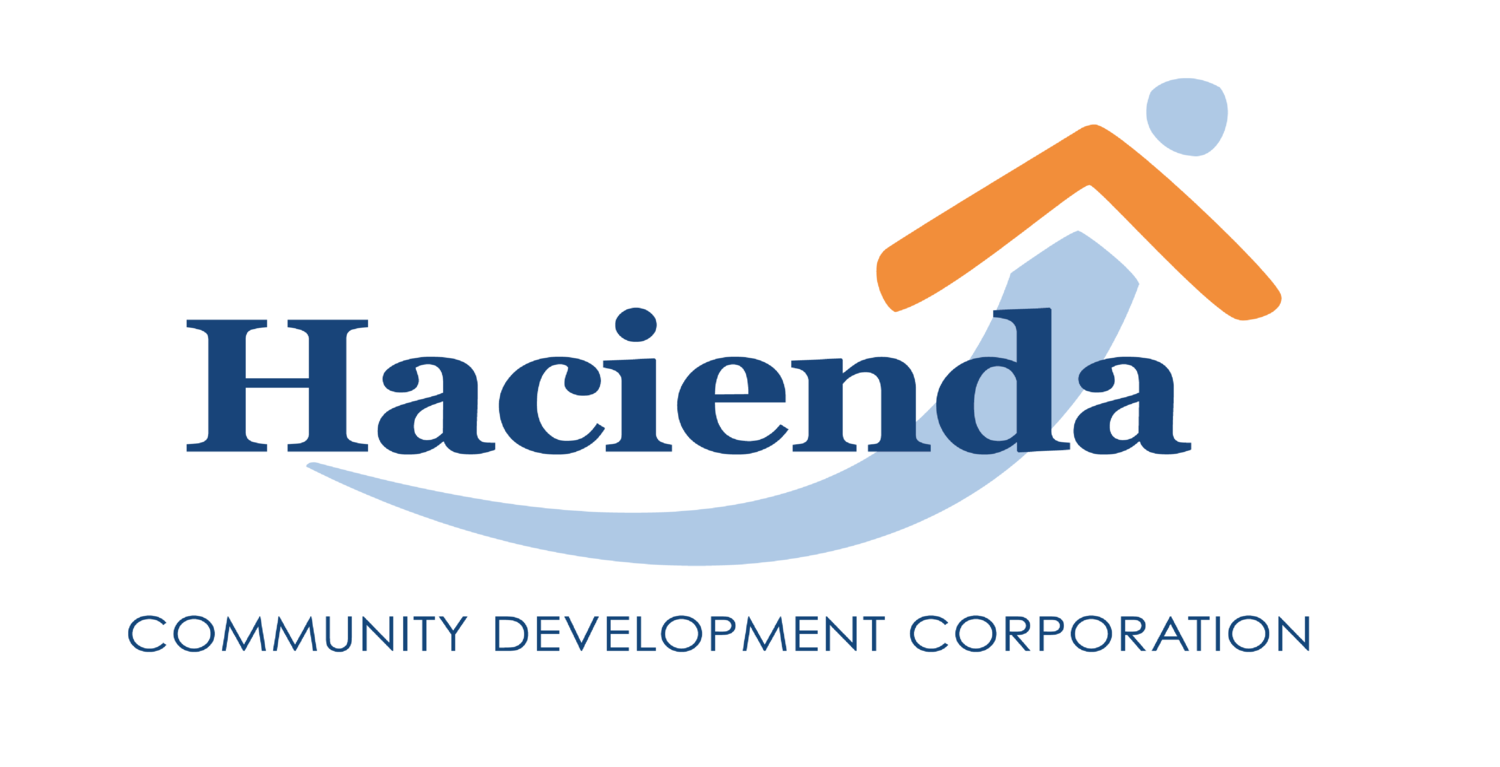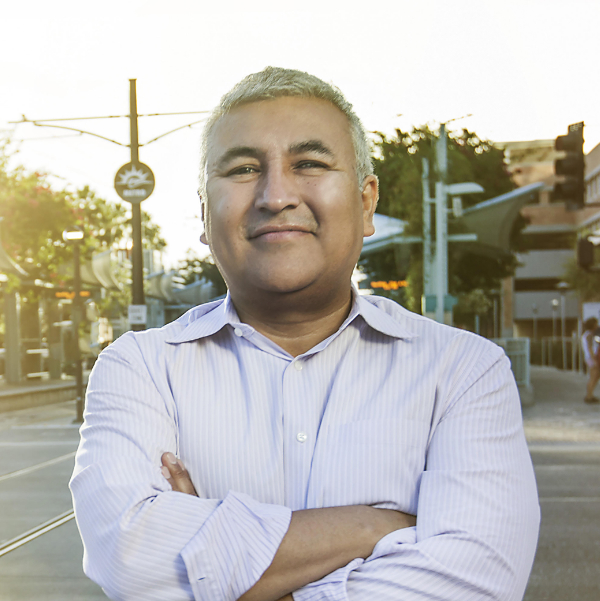Welcome to this edition of the Equity Lens! This edition provides a fresh look at the work of our members, partners, and community leaders.
Here's a quick overview of this edition of the Equity Lens:
CCC MEMBER SPOTLIGHT
CCC PARTNERSHIP WITH OREGON JUSTICE RESOURCE CENTER
CCC'S RESEARCH JUSTICE EFFORTS IN PARTNERSHIP WITH METRO
CCC MEMBER FALL GALA OVERVIEW
WELCOMING NEW CCC LEADERS TO HACIENDA CDC & PORTLAND AFRICAN AMERICAN LEADERSHIP FORUM
A Halloween Quiz!
CCC Member Spotlight: VOZ Portland
Romeo Sosa
Executive Director, VOZ Portland
Voz is a worker-led organization that empowers diverse day laborers and immigrants to improve their working conditions and protect civil rights through leadership development, organizing, education and economic opportunity. We provide day laborers with leadership development opportunities as well as classes aimed at providing them with the skills they need to secure long-term employment. Voz uses Popular Education methodology in our leadership development and grassroots organizing, and we have a strong history of community engagement as a worker-led organization. Romeo Sosa has been Executive Director since 2004.
Where I came from:
The Mayan story is a story that goes back thousands of years. It is a story of struggle to defend our language, our tradition, our culture, and our religion from the Spanish who invaded us. As a Mayan growing up during 36 years of Guatemalan civil war, it was important to understand political justice-- why I was seeing bodies and houses burning. At eight, I learned rich people were taking land and the poor were fighting back to defend the land-- sacred, Mother, and life giver in my culture.
What is a day laborer?
When I came to the U.S., I discovered the irony of the American Dream: I did not find riches, but instead I worked in the fields and the first thing handed to me was a shovel. I was changed by the exploitation of workers and racism we experienced. In the past ten years, we challenged some of the community assumptions about day laborers and immigrants: that they are drunks, homeless, drug dealers, or terrorists. They are people seeking work, food, safety, and peace. I worked in the fields, cut Christmas trees, picked tomatoes and blackberries, worked as a janitor, and took care of people with disabilities. Too many jobs to count just to survive. I discovered VOZ when I worked in the St. Francis dining hall feeding day laborers.
How Voz formed:
VOZ began in 2000 and is becoming one of Portland’s strongest organizations pushing for immigrant rights. One of the main reasons VOZ exists is that we want day laborers to organize themselves, to stand up and speak up about the issues they face, and to ensure they are seen as equal. We are empowering people to change their own reality by creating solutions. We also founded the National Day Laborers Organizing Network so day laborers from across the country can share their experiences.
And we are seeing victories through our coalition work. We united with Portland Immigrant Rights Coalition and, with the help of the City of Portland, we established the first worker center in the city. There we offer skills, health and safety training and art, computer, and English classes while people wait for work. Because we need to have voices of day laborers in decision making processes, VOZ developed leadership development curriculum. Day laborers are becoming aware of their rights (and we put these on a “green card”), particularly regarding wage theft and immigration enforcement.
Climate justice
Over the past few years we have been integrating environmental and climate justice and disaster resilience into our work. This is particularly relevant with historical hurricanes and earthquakes battering our communities across Central America, Caribbean Islands, and North America. Day laborers are the first responders to natural disasters, yet the most exploited-- no access to safety precautions, facing wage theft, or even being deported when the job is done (so as to avoid payment). Day laborers need safety, rights, and green jobs training like we are doing with OSHA (Occupational Safety and Health Administration). Our communities need green jobs-- not a decision between health, safety and work.
Our Fights are Connected
Now, more than ever, we must see the intersections between policies of the new administration, immigration and criminal justice, workers rights and climate justice. It is encouraging to see people uniting and working together around immigrant rights like I have never seen before. For example, OPAL organized a march to support immigrant rights because it is clearly connected to the dangers day laborers face when cleaning up from human induced climate change disasters. Rights for immigrants and workers is climate justice.
Oregon Justice ResOURCE Center's (ORJC) new advocacy guide focuses on disrupting mass incarceration at the local level
The United States is widely known as the world’s jailer. In recent months, the problem of racialized mass incarceration has gained increased attention, around the country and in Oregon.
“With the recognition that too many people have been criminalized, and that sentences have become overly punitive beyond a point of effectiveness, comes a push for radical transformation starting in the communities where stakeholders live, work, and answer to the people who elect them.”
A new Advocacy Guide, “Disrupting Mass Incarceration at the Local Level,” released earlier this summer by the Oregon Justice Resource Center provides a starting point. The Guide illustrates that locally-elected leaders at the city and county levels have tremendous power to drastically change systems of over-criminalization if pushed to do so by the communities they serve.
OJRC’s strategic local focus seeks to increase opportunities for engagement. Local level engagement removes some of the barriers to participation that too frequently prevent communities most impacted from having their voice heard, such as the time and travel needed to advocate with state legislators.
County and municipal actors also have great potential to perpetuate or eliminate the extreme racial disparities embedded within our criminal justice system. The Guide illustrates how local elected officials have a wide array of power and discretion to either decrease or increase our reliance on incarceration including local policies around whether to stop, to search, to arrest, to fine, to divert or charge someone, how long of a sentence to seek, and whether they will stay in county jail or go to a state prison.
The Guide provides a resource to build community power to make progress around racial justice and civil rights by holding elected leaders accountable. Increasingly, there is a push to direct limited tax dollars to fund more effective approaches and community led programs outside of the criminal justice system, including culturally responsive community supports that are more effective at prevention. There are multiple opportunities to engage in the budget process such as the county budget hearing hosted by the Coalition of Communities of Color.
For communities of color there is an added degree of urgency to this work that goes beyond the glaring racial disparities currently embedded within the justice system. Recently, some policy reforms across the country have led to a decrease in overall incarceration numbers but an increase in racial disparities. This troubling trend illustrates the necessity for communities of color to be included at the table in decision-making early on and to engage locally long after elections are won or reform bills are passed.
Currently, the Oregon Justice Resource Center is seeking community feedback, collaboration and ideas on approaches to transform the justice system at the local level. Presentations and assistance with facilitation are available free of charge. The Guide is publically available to download on the OJRC website here.
CCC & Metro Partnership: Leveraging the Value of Community Expertise When Making Important Decisions
“Community-led research is at the foundation of our efforts to understand the lived experiences and realities that stem from the social, political, economic, cultural and structural complexities of our region. The Coalition of Communities of Color’s research justice model has created this opportunity while also striving to build the research capacity of our community members. This collaborative, community-led research is inspirational and Metro is honored to support the Coalition of Communities of Color in this critical work.”
This year the CCC organized multiple discussion-based community focus groups and conversations in the region to identify culturally specific community priorities and explore advocacy strategies while emphasizing community strengths. These activities included a spring and summer engagement of CCC Bridges Alumni with Metro to explore community priorities related to their five year racial equity strategy; eight culturally specific community conversations with African, African-American, Asian, Latino, Native American, Native Hawaiian and Pacific Islanders, and Slavic communities about racial equity issues in Washington county; statewide cross-cultural focus groups to develop a multi-racial narrative around racial equity; and a City of Portland wide series of intersectional and multiracial focus groups about people’s experiences with hate-motivated violence.
The CCC’s method of engagement is rooted in our culturally specific leadership development model and our research justice vision that asserts that people of color are experts of their lived experiences and have a right to be heard and a right to know information. During these workshops we focus on trust building and intentionality by create a space for shared experiences to be heard and where the labor and expertise of people of color is valued.
Our approach embodies the following values:
- Equitable partnership -- equitable community involvement from the beginning to the end of the process rather than a one-way mining of a community’s experiential and cultural knowledge.
- Community Priorities – Elevating expertise of communities of color, emphasizing community strengths, and addressing self-determined community priorities.
- Transformative Action – Enabling community-generated solutions in public policy and decision making towards creating lasting change.
- Sustainable Capacity – Building long term and sustainable capacity among communities of color to develop their own expertise, define priorities and propose meaningful solutions which goes beyond a single project.
- Transparency and Accountability – Commitment to a transparent process with built in accountability where communities that were engaged have the opportunity to provide critical review.
- Our clients agree with these principles and value culturally specific experiential and cultural knowledge that is typically left out of mainstream and colonized definitions of knowledge.
In order to find out more about how you can conduct community engagement in a way that is equitable and rightfully values communities of color as experts, contact either Shweta Moorthy (shweta@coalitioncommunitiescolor.org).
CCC Member Fall Fundraisers Galore!
This fall, a number of powerful events were hosted by our CCC members to showcase their work, their strength and the resiliency of communities of color. Here are just a few of the events that have successfully taken place during this season, along with some fun pictures from social media. There are still plenty of future opportunities for folks to come out, have a great night, see the beauty of our communities, and financially support the important work of these culturally specific organizations. Both Milagro and the Native American Youth and Family Center (NAYA) have exciting events coming up soon! If you’re interested in finding out more information about these upcoming events, please click on the links below to connect with their respective websites.
Self Enhancement Inc.'s Soul of the City
Saturday, Sept 16, 2017
Event Pics from Self Enhancement Inc.’s Event (https://itsaboutyou.smugmug.com/SEI-Soul-of-City-091617/) These photos are copyrighted by their respective owners. All rights reserved. Unauthorized use prohibited.
Latino Network's Noche Bella
Friday, Sept 22, 2017
Event Pics from Latino Network’s Twitter - @latnet_PDX
Urban League of Portland's Equal Opportunity Awards Day Dinner
Tuesday, Sept 26, 2017
Event Pics from Urban League of Portland’s Twitter - @ULPDX
“Éxodo” A Day of the Dead Production
Created with Tracy Cameron Francis and Roy Antonio Arauz
October 19 – November 12, 2017
World Premiere / Bilingual
Special Events: Talk-back following the 2 PM performance on Sunday, October 22, 2017
For more info and/or to purchase tickets: http://milagro.org/event/exodo-dia-de-muertos/
¡Viva Milagro!
Wednesday, November 1, 2017
6:30pm – 9:00pm
RSVP by October 24
El Zócalo at El Centro Milagro | 537 SE Stark Street | Portland, OR 97214
For more info: http://milagro.org/ or 503-236-7253
14th Annual NAYA Gala
Friday, Nov 17, 2017
Portland Art Museum | 1219 SW Park Avenue | Portland, OR 97205
For more info and/or to purchase tickets: http://nayagala.org/
The CCC Welcomes New CCC Executive Directors to Hacienda CDC & Portland African American Leadership Forum
Ernesto Fonseca
Executive Director, Hacienda CDC
Tell us about yourself and your racial justice vision
Since I arrived in Oregon, I have been asked this questions many times. My approach to racial justice emerges from my upbringing in Mexico. I was born to a plumber and a homemaker in a small community in Central Mexico. As many families still do today, we grew up in poverty. My first memories of home are those of a tarpaper house with two rooms that leaked every time it stormed. This was stressful, but I didn’t know any differently—it was simply the way our life was, so I did not think of it as a challenge. I had a wonderful childhood playing in the mud or catching bugs in adjacent empty lots with my brothers and sister and our neighborhood friends. My parents always asked us to dream big and study hard, and they led by example. I watched as my father went from a plumber to building his own construction company and soon after, my mom followed her own dream and became a nurse.
My own family’s story demonstrates the vast potential already present in our communities of color and low-income families. I see it as Hacienda’s work to make sure our families can access the critical ingredients they need to unleash that potential: a stable, affordable home, a healthy family life that allows our youth to learn and grow, opportunities for economic success, and access to affordable health care and healthy communities. My family relied on all of these assets, and thanks to my parents’ encouragement I have had amazing opportunities such as becoming the youngest violinist in the chamber orchestra in my home state, pursing degrees in architecture and community development, and helping to found the Arizona State University Stardust Center for Affordable Homes and the Family to empower other families like mine to seguir adelante. Now my partner, Susan, and I are passing these values along to our children Copitzi and Emiliano. And we’re also making sure they know about Benny Beaver, even though they grew up as Sun Devils!
My experiences and upbringing have shaped and strengthened my values and priorities. I joined Hacienda because we share those values with the people we serve; we shared the same struggles. Investing in our low- and moderate-income families and individuals from day one, in health care, housing, education and economic opportunity access are fundamental elements that will bring influence, resources and power to communities of color. And an Oregon where all Oregonians can reach their full potential is the version of Oregon we want to achieve.
What’s your favorite Fall-related activity?
Camping and getting to enjoy a nice and exhausting hike in the middle of the woods is one of my favorite things to do in the fall. Spending time in solitude contemplating nature is just amazing!
Joy Alise
Executive Director, Portland African American Leadership Forum
Tell us about yourself and your racial justice vision.
I was born in Cincinnati, Ohio and raised in Montego Bay, Jamaica. I have been very blessed to join the Portland African American Leadership Forum family. I joined PAALF after managing the PAALF People’s Plan—a visioning project with the goal of empowering the Portland Black community to assert their right to actively shape the city they live in, to create a plan that framed the policy agenda projecting the vision for a thriving black community, and to advance community-initiated projects that benefit Africans and African Americans living in Portland, Oregon.
Before joining PAALF, I owned and managed Design + Culture, a collaborative design and racial equity strategy firm. I received my Masters in Arts in Theories of Urban Practice from Parsons the New School of Design in New York City. My graduate thesis examined the role of people of color in urban transformation and the practice of self-determination as a mode for producing healthy communities in my study the Right To Difference - Intercultural Modes Of Producing A Democratic, Participatory, And Inclusive Urban Space. I attended Miami University, receiving a Bachelors of Arts in Political Science. I am an active member of Zeta Phi Beta Sorority Inc., Pi Alpha Zeta Graduate Chapter, a member of the Miami University Young Alumni Council, and a member of the Community Alliance of Tenants (CAT).
My racial equity vision is grounded in self-determination. From the Nguzo Saba, we have come to know Self-determination as Kujichagulia, the meaning is to define ourselves, name ourselves, create for ourselves, and speak for ourselves. The principle is rooted in reclamation and preservation of an afro-centric concept of self and community, by listening and being guided by our inner voice.
What's your favorite Fall related activity?
I love the Fall! My favorite fall activity would have to be baking treats for my friends and family. I am very proud to say that my paternal aunt has shared my family's secret sweet potato pie recipe (trust me, this was not an easy task). Food is such an intimate activity; it feels good to enjoy this special family recipe with loved ones.



























